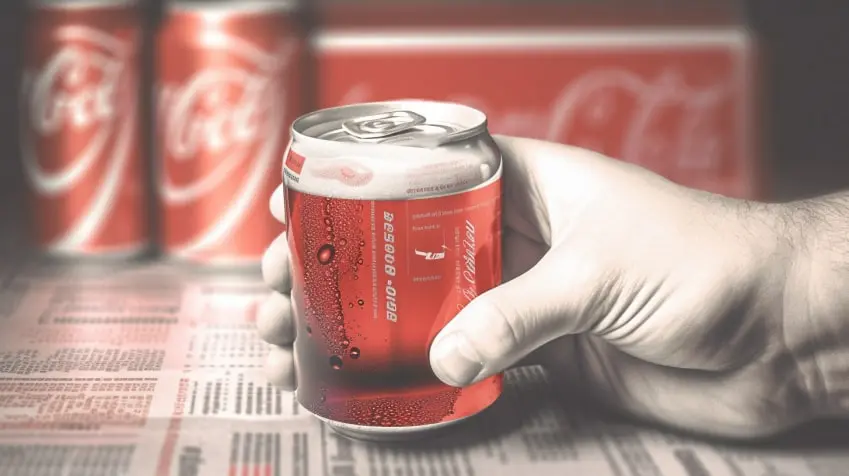Can Dialysis Patients Drink Sprite?
Dialysis is a life-saving medical procedure that helps people with kidney failure remove waste and excess fluids from their bodies.
According to the National Kidney Foundation, over 500,000 Americans undergo dialysis treatment each year.
One question that arises frequently is Can dialysis patients drink Sprite? The answer to this question requires careful consideration.
While Sprite may seem like a harmless beverage choice, it’s crucial to understand its potential impact on individuals undergoing dialysis treatment.
The renal health of dialysis patients is delicate, and their dietary restrictions are essential to maintaining optimal well-being.
In this article, we’ll explore the reasons why dialysis patients should exercise caution when it comes to consuming Sprite and other carbonated drinks.
By understanding the potential risks and alternatives available, we can help dialysis patients make informed decisions about their beverage choices while managing their condition effectively.
So, let’s delve into the intricacies of this topic and shed light on the implications of consuming Sprite for individuals on dialysis.
Key Takeaways
- Dialysis patients are advised to follow a strict diet plan that includes limiting intake of sodium, potassium, phosphorus, protein, and fluids.
- Excessive consumption of soda, including Sprite, has been linked to an increased risk of developing kidney disease and worsening existing conditions in those already diagnosed with the disease.
- Dialysis patients should aim for healthy hydration by drinking plenty of fluids that are low in sodium, including water, unsweetened herbal tea, and low-sodium sports drinks like Gatorade.
- Patients should consult with their healthcare provider before making any changes to their diet or fluid intake, as personalized plans can help dialysis patients manage kidney function effectively while still enjoying some foods and beverages.
The Importance of Diet for Dialysis Patients
The maintenance of a proper diet is crucial for dialysis patients in order to effectively manage their condition and improve overall health outcomes.
Dialysis patients are required to adhere to strict dietary restrictions that aim to reduce the build-up of waste products in their body, maintain appropriate levels of electrolytes and fluids, and prevent complications such as malnutrition, high blood pressure, and heart disease.

Nutritional guidelines for dialysis patients typically include limiting intake of sodium, potassium, phosphorus, protein, and fluids.
Sodium restriction is particularly important as excessive salt intake can lead to fluid retention which puts extra strain on the kidneys.
Potassium levels must also be closely monitored as high levels can cause irregular heartbeats or even cardiac arrest.
Similarly, phosphorus intake must be limited as it can cause bone problems and weaken the cardiovascular system.
Protein restriction helps reduce the production of waste products that need to be eliminated by the kidneys while fluid restriction limits water buildup in tissues which can cause swelling or edema.
Understanding the Risks of Soda Consumption
Amidst the plethora of concerns surrounding soda consumption, it is important to acknowledge the potential risks associated with regular intake.
For dialysis patients, who are already at a higher risk for health complications, these risks can be even more significant.
Some of the health implications that have been linked to excessive soda consumption include:

- Increased risk of obesity and diabetes due to high sugar intake
- Higher likelihood of developing kidney disease or worsening existing kidney problems
- Negative impact on bone health due to decreased calcium absorption
- Potential damage to tooth enamel and increased risk of cavities
- Increased risk of heart disease and other cardiovascular issues
It is crucial for dialysis patients to carefully monitor their sugar intake and consider the potential risks before consuming any sugary beverages, including soda.
Working with a healthcare provider or registered dietitian can help ensure that dietary choices are in line with individual needs and restrictions.
Comparing Sprite to Other Types of Soda
When evaluating the nutritional value of carbonated beverages, it is important to compare Sprite with other types of soda.
Sprite and Coke are both popular sodas that contain high amounts of sugar, caffeine, and phosphoric acid. However, when comparing the two drinks, Sprite contains less sugar and no caffeine or phosphoric acid.

The health effects of soda on kidney disease patients have been extensively studied. Excessive consumption of soda has been linked to an increased risk of developing kidney disease and worsening existing conditions in those already diagnosed with the disease.
While Sprite may be a better option compared to other types of soda due to its lower sugar content and lack of caffeine and phosphoric acid, it is still recommended that kidney disease patients limit their intake of carbonated beverages altogether for optimal health outcomes.
The Benefits of Sprite for Dialysis Patients
For those undergoing treatment for kidney disease, Sprite may offer a potential alternative to other carbonated beverages.
Dialysis patients often have limited options when it comes to what they can drink due to their condition.
While water is the recommended beverage for patients with kidney disease, it can become monotonous and unappealing over time.
In contrast, Sprite offers a refreshing taste that can provide variety in their fluid intake. Additionally, compared to other types of soda.

Sprite has a lower amount of sugar and calories which can be beneficial for dialysis patients who need to watch their weight.
It is important to note that while Sprite may offer some benefits for dialysis patients, it should still be consumed in moderation as part of an overall healthy diet plan.
The nutritional value of Sprite is relatively low and does not provide significant amounts of vitamins or minerals.
Patients should also consult with their healthcare provider before making any changes to their diet or fluid intake.
Overall, while water remains the best choice for dialysis patients’ hydration needs, incorporating small amounts of Sprite into their fluid intake may offer some variety and enjoyment without compromising their health goals.
Factors to Consider Before Drinking Sprite
One notable fact is that the average American consumes approximately 44 gallons of soda per year, which raises concerns about the potential health effects of excessive soda consumption.
Dialysis patients are no exception, as they need to be mindful of what they consume to manage their condition effectively.
While Sprite may offer some benefits for dialysis patients, there are certain factors to consider before drinking it.

One factor is the sugar content in Sprite. A can of Sprite contains around 38 grams of sugar, which is almost equivalent to 10 teaspoons of sugar.
Consuming too much sugar can lead to dehydration and negatively impact blood glucose levels, which can be harmful for dialysis patients who already have compromised kidney function.
Therefore, it is recommended that dialysis patients limit their intake of sugary beverages like Sprite and opt for healthier alternatives such as water or unsweetened tea to maintain optimal hydration levels and overall health.
Alternatives to Soda for Dialysis Patients
Healthier beverage options are essential for individuals managing kidney function, and making a switch from soda to alternatives such as water or unsweetened tea can significantly improve overall well-being.
Dialysis patients should aim for healthy hydration by drinking plenty of fluids that are low in sodium.
Below are three examples of beverages that dialysis patients can consume safely:

- Water: This is the healthiest option for dialysis patients, as it is free of sugar, calories, and additives. Additionally, staying hydrated with water can help flush toxins out of the body more efficiently.
- Herbal Tea: Drinking unsweetened herbal tea is another great way to stay hydrated while avoiding added sugars and caffeine found in other types of tea or coffee.
- Low Sodium Drinks: If dialysis patients crave soda-like drinks, they should opt for low sodium options such as cranberry juice or low-sodium sports drinks like Gatorade. These drinks still provide flavor without the excess salt content found in regular sodas.
By choosing healthier beverage options like these, dialysis patients can maintain good hydration levels while also reducing their intake of harmful substances that may exacerbate their condition over time.
Consultation with a Healthcare Professional
Consulting with a healthcare professional is crucial for individuals managing kidney function, as they can provide personalized recommendations and guidance on managing fluid intake and avoiding substances that may worsen the condition.
This is particularly important for dialysis patients who need to be careful about what they drink, including sodas like Sprite.
Healthcare professionals can provide nutritional guidance to help patients make informed decisions about their diet and fluid intake.
When it comes to soda consumption for dialysis patients, healthcare recommendations vary depending on individual circumstances.
Some patients may be advised to avoid soda altogether due to its high sugar or sodium content, while others may be able to enjoy soda in moderation as long as they are monitoring their fluid intake closely.
Ultimately, consulting with a healthcare professional is the best way for dialysis patients to determine whether or not Sprite or any other specific beverage is safe for them to consume.
By working together with healthcare providers to develop a personalized plan, dialysis patients can manage their kidney function effectively while still enjoying some of the foods and beverages they love.
Frequently Asked Questions
Can dialysis patients consume other carbonated drinks besides Sprite?
Alternative options to Sprite for dialysis patients include carbonated water and sugar-free soda. These can provide a refreshing beverage without the added sugar and calories found in regular soda. Additionally, some studies suggest that moderate consumption of carbonated drinks may have health benefits such as improved digestion.
How much Sprite can dialysis patients consume safely?
The safe intake of Sprite for dialysis patients depends on their individual needs and treatment plan. While it contains no nutritional value, research suggests that moderate consumption is unlikely to pose a risk to kidney function.
Are there any potential negative effects of Sprite on dialysis patients?
Sprite consumption may negatively affect pH balance and phosphorus levels in dialysis patients. These effects can lead to complications such as bone disease, cardiovascular issues, and nerve damage. It is recommended that dialysis patients limit their intake of high-phosphorous beverages like Sprite.
Can dialysis patients drink Sprite before or after their dialysis treatment?
Optimal pre-dialysis hydration is critical for patients undergoing dialysis. Post-dialysis, patients need to replenish lost nutrients and fluids. Sprite offers empty calories and high sugar content, making it an inadequate option for post-dialysis nutrition.
Can Sprite be a part of a dialysis patient’s long-term diet plan?
Dialysis patients should consider alternatives to Sprite in their long-term diet plan, as it contains high levels of sugar and phosphorus. The nutritional value of Sprite for dialysis patients may be limited due to these factors.
Conclusion
A proper and balanced diet is crucial for dialysis patients. The consumption of soda has been linked to several health risks that can further aggravate their condition.
While Sprite may be a better option compared to other types of soda due to its lower sugar content, it still contains artificial additives that may be harmful in the long run.
It is important for dialysis patients to consider all factors before consuming any type of drink, including their overall health status and medication intake.
Consulting with a healthcare professional can provide valuable insights on what beverages are safe and beneficial for them.
Other alternatives such as water or herbal tea can also provide hydration without the added risks associated with soda consumption.
Ultimately, making informed choices about one’s diet is essential in maintaining optimal health and well-being for dialysis patients.
